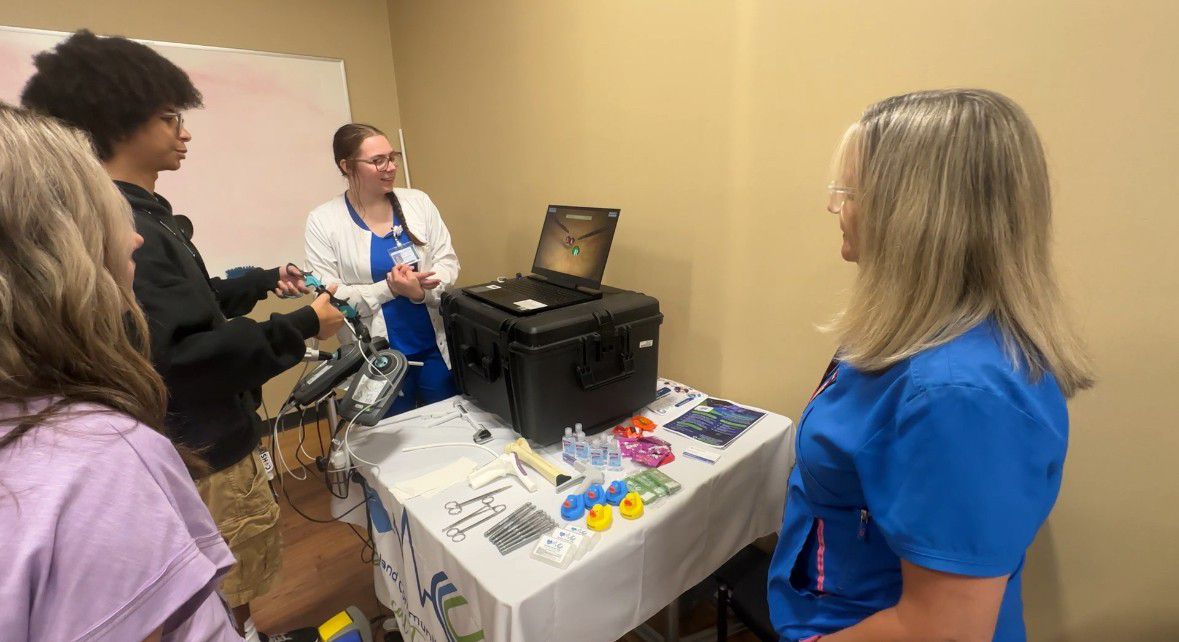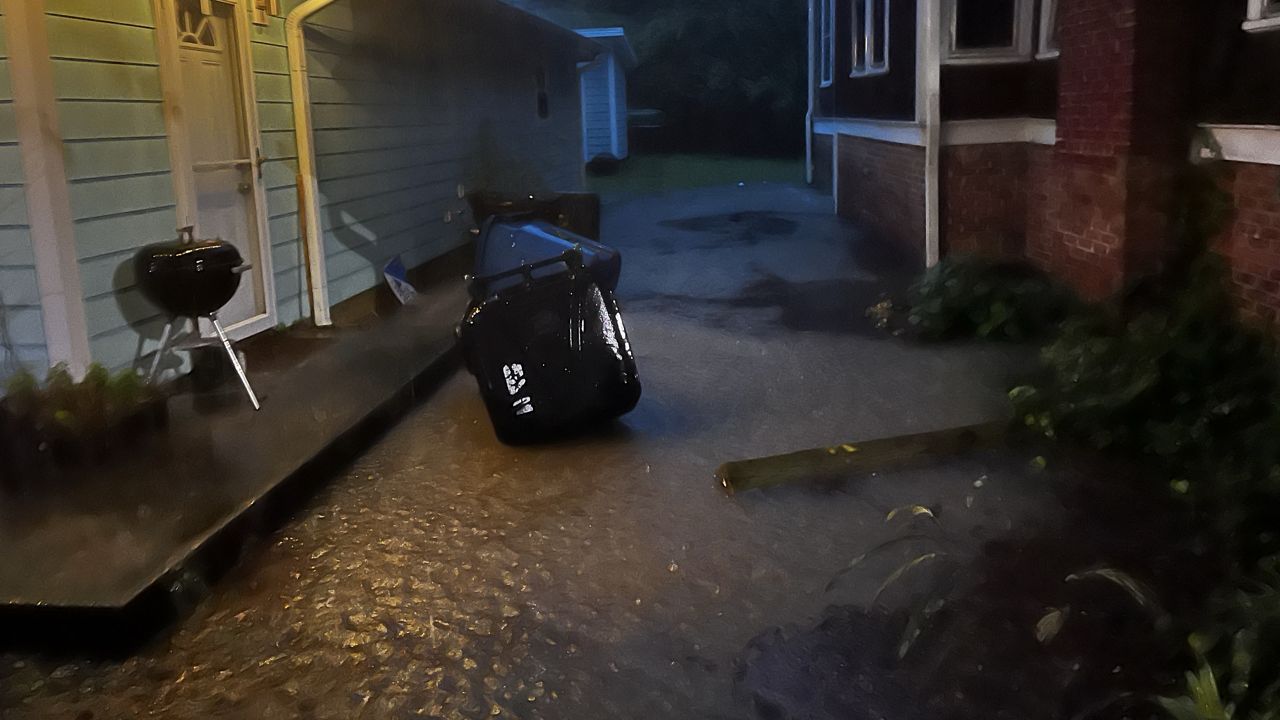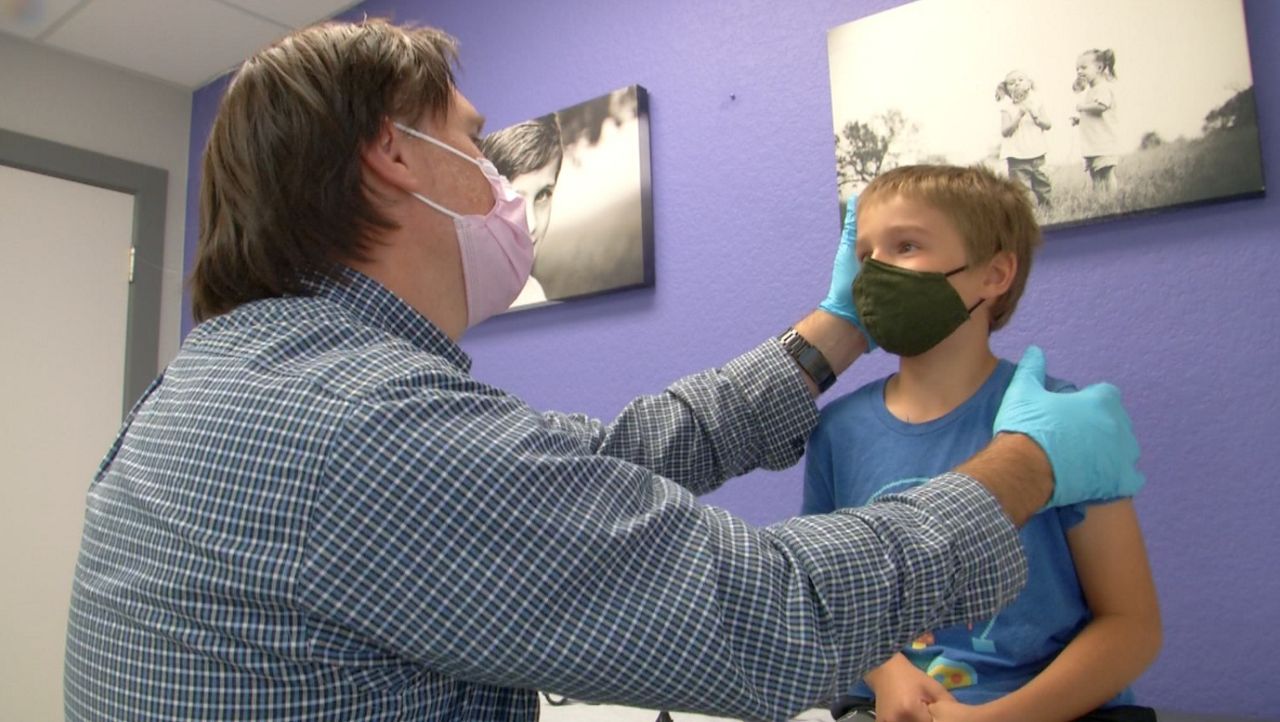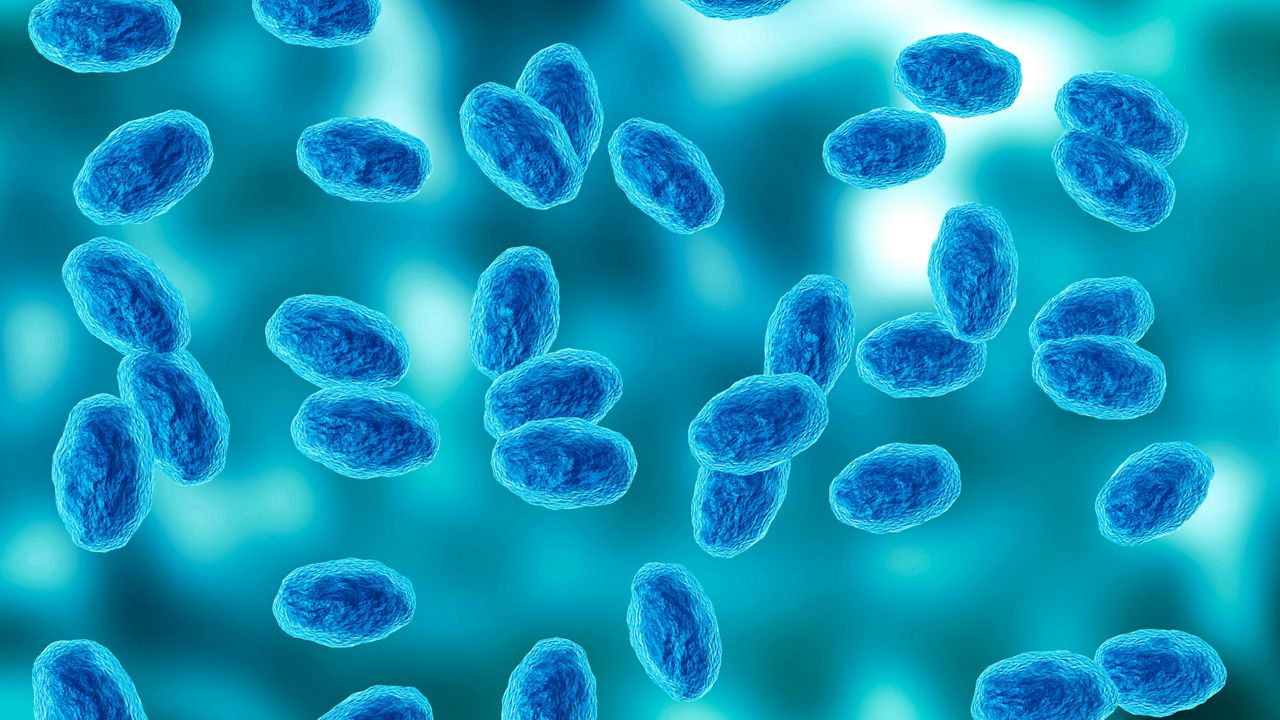DURHAM, N.C. — Imagine being bitten by a snake one moment, a patient in a hospital bed hours later and a participant in a study … all within 24 hours.
That’s the life of Malcolm Chandler. His scary run-in with a snake outside of his home in Durham could help the world.
“It makes you feel good about yourself, I mean if you can help anybody with anything,” Chandler said.
Duke Health is running an antivenom study and is a trial site for an antidote drug to create a universal snakebite remedy.
Chandler said he didn’t think twice about walking into his backyard on the Saturday afternoon of May 21.
“Because a storm was coming up, and I just went walking right through here,” Chandler said as he pointed to a clearing between two bushes in his backyard. The 70-year-old said he was headed to the other side of his yard to lock his shed when was caught by surprise.
“I got about right here and felt it,” he said as he looked down at a small patch of grass.
The sensation was a snake bite from a copperhead to the back of his right foot just above the heel.
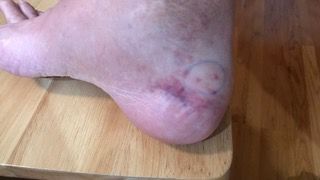
“I looked at my ankle and you could see the two fang marks,” he said.
Right after the bite, Chandler said he stepped over the snake and walked to his shed where he removed a shovel, and he killed the snake with it.
After he put an end to the copperhead, he told his wife, Connie.
“I came in the house and said to her, ‘I’ve been bitten by a snake.’ She lost it,” he said.
The lifetime Durham resident said around 10 minutes after the snakebite, he was taken by ambulance to Duke University Hospital for an overnight stay.
The next day, the chief of emergency medicine, Dr. Charles Gerardo made a request. The doctor asked Chandler to go from receiving care to contributing to an antivenom study.
“He was trying to get some of his Duke patients to participate and would I be willing to do that? And I said sure,” Chandler said.
Gerardo said it was as opportune for him as a physician as it was for Chandler as a patient.
”When they are willing to participate, it’s great for them to have the opportunity to help us learn something. Most patients look at it as, ‘I’m helping the next person that’s bitten by a snake,’” Gerardo said.
Chandler would become a monthlong participant in the search for a universal antidote. The study is using an antivenom drug called Varespladib Methyl.
This drug, manufactured by Ophirex Inc., comes in the form of a pill. The pill is taken by mouth in conjunction with traditional intravenous therapies. While there are a number of good IV treatments available, they aren't always accessible when needed most.
“If there is a safe and effective pill, in addition to standard therapy, that could fill a lot of those gaps,” the doctor said.
Currently there are many barriers to distributing antivenom treatments around the world
The doctor said limited access to patients in rural areas, impractical storage requirements, time delays in delivering medicine and matching antivenoms to different types of snakebites are some of more notable barriers to more efficient care.
“We are driven by the limitations of the current therapies available to us for any disease. In the case of snake bite, there’s a lot of limitations of the current therapy,” Gerardo said. “It still has some gaps. One is it still has to be administered in the IV. That means you need a certain level of care and a certain level of practitioner to provide that medication.”
It only took a run-in with one snake for the 70-year-old to turn a negative into a positive.
“I feel like if you have an opportunity to help someone, you ought to do it," Chandler said. "It’s certainly going to help a lot of people I hope."
Gerardo made clear that Chandler's participation could save a life and lead to better medicine over time. Chandler’s final day of participation was June 22.
“We appreciate your help,” Gerardo said to Chandler as he shook his hand.
It would be the last time the two would see each other for the study.
“It’s going to help people in the future and others are enrolling all around the world. So this is a good thing,” the doctor said.






